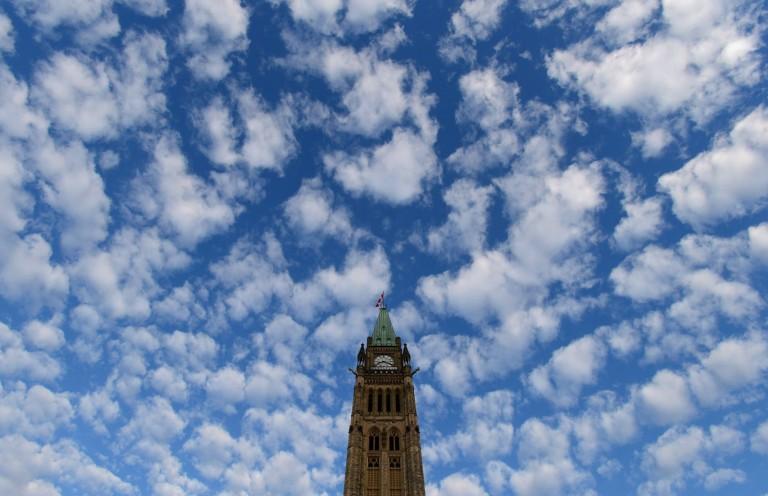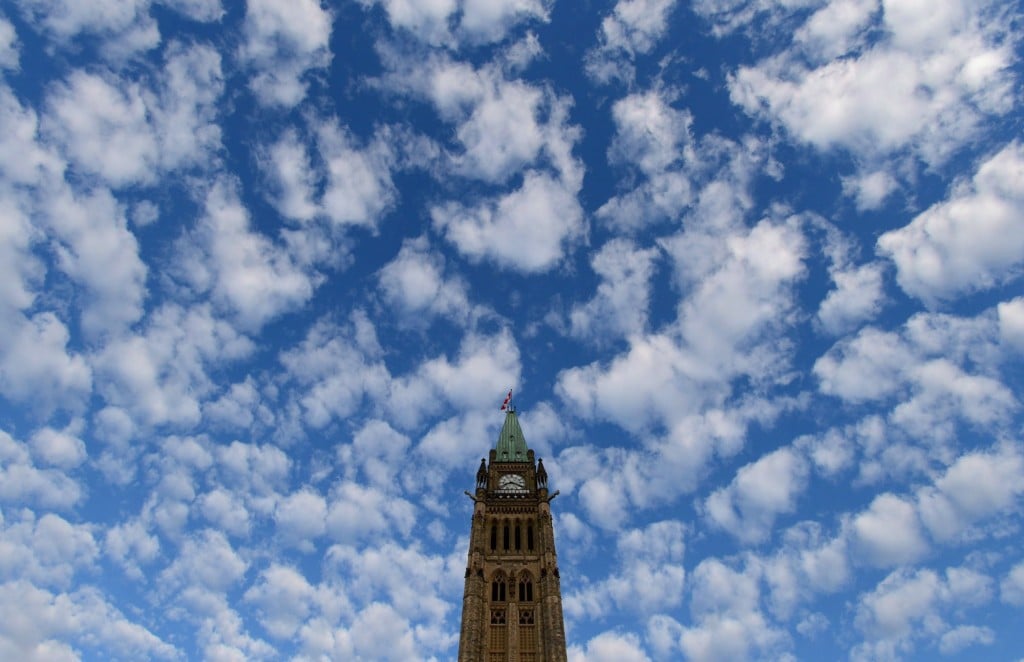Canada is a great democracy. But you need to understand it.
We can debate if Canada’s democracy is the best model—but it is surely a democracy, even if one critic got it so wrong

The Peace Tower is seen on Parliament Hill in Ottawa on November 5, 2013. THE CANADIAN PRESS/Sean Kilpatrick
Share

Evaluating democracies is tricky work. There are competing conceptions of how a state should be organized and of which rules are best—indeed, we’ve disagreed with one another over this for thousands of years. Some prefer a participatory state, where individual citizens play an active role in self-government; others prefer an arrangement where very little is asked of citizens and in which governments are left to their own devices (between elections). Some want there to be as many elected positions in the country as possible, including, for instance, judges, so that popular control of who governs extends widely across the state; others argue that too much democracy leads to populist excesses and poor outcomes. There are many models of democracy that reflect a variety of values, priorities, and conceptions of how we ought to live together.
Canada is a parliamentary democracy and a constitutional monarchy. Roughly, this means that our government is formed by the party or group of parties that can obtain and maintain the confidence of the legislature, and that our sovereign (and head of state) is bound by the Constitution. We also have regular free and fair elections, a legitimate judiciary, and a robust set of rights and freedoms. I hope you’ll pardon the quick civics lesson, but a recent piece by J.J. McCullough in the Washington Post has me concerned that one is necessary.
In a column initially headlined “Is Canada really a true democracy?” and now titled “Canada is not a great democracy, but do we care?”, McCullough argues that Canada is not a “great” or “full” democracy because of excessive executive powers wielded by the prime minster and the Cabinet, especially wide-ranging appointment authority; strict party discipline; and a lack of American-style checks and balances. He caricatures defenders of the system by suggesting all they care about is “efficiency” and suggests that those who support Canadian democracy and criticize authoritarian or quasi-authoritarian leaders such as Recep Tayyip Erdoğan, Vladimir Putin, or Nicolás Maduro are being disingenuous. In doing this, McCullough sneaks in a false equivalency between Canada, one of the world’s top-ranked democracies, and Turkey, Russia, and Venezuela (which, spoiler, don’t rank so highly) while caricaturing the Canadian system.
Here are some of the many reasons McCullough is confused and wrong. For one, while efficiency is one of the goods produced by the Canadian democratic system, accountability is central to how things operate here. When a single government with broad powers (which are constrained by ordinary law and by the Constitution, which is hard to alter) acts, it must answer to both the House of Commons (in which individual members of Parliament are, admittedly, underpowered) and to the electorate come election time. In Canada, there’s a long, proud tradition of turfing governments that have become unpopular.
Over time, governments in Canada have also proven to be responsive to the population—indeed, far more so than in the United States, a country for which McCullough betrays a bizarre endearment coupled with a shallow understanding of it. Despite how things may seem, folks here tend to get the policies and laws they prefer on most matters, at least eventually. So, not only are governments accountable to the House of Commons (day-to-day) and to the people (during elections), the work they do delivers what the people want. And when you take a broader view of Canadian democracy, things look even better. We enjoy a robust and active civil society and a free press, which act as further checks on the government and the state.
So, thus far, we have an efficient government that is constrained by ordinary and constitutional law, accountable to the Commons and the people, responsive to the population, and further checked by civil society and the press. The same cannot be said quite the same way of Turkey, Russia, Venezuela or, when it comes to responsiveness, of the United States.
Our country is marked by extensive civil liberties, a vibrant political culture, moderate political participation rates (on this we could do much better), a well-functioning government, vibrant pluralism, and regular, legitimate elections. These goods correspond to The Economist’s Democracy Index—an imperfect index, as all are, but a reliable one. It’s no surprise that in 2016 Canada ranked 6th in the world (as a full democracy, compared to the United States, which sits at 21st and is classified as a “flawed democracy”).
What McCullough is expressing is not that Canada isn’t a “great” or “full” democracy, but rather that he doesn’t like how our democracy works. Fair enough. Some don’t. But when arguing about whether a country is a democracy or not, it’s cowardly, foolish, disingenuous, or some combination of the three, to smuggle in one’s own definition of democracy, especially the unsophisticated and incomplete model offered by McCullough, to set up a straw-man attack against a system you find distasteful.
McCullough would have been better off arguing why he believes that a more populist, further-constrained, and legislature-dominant model would be more appropriate and democratic than the current model, which has served Canada well and made us one of the most robust and resilient democracies on the planet. Of course, shadowboxing is easier than battling a proper opponent, just as caricaturing Canadian democracy while lumping our country in with authoritarian regimes is easier than engaging with the layered and complex nature of how things work here. Sadly, though, facile hot-takes enjoy a market—and they’re certainly permitted in our democracy. Lucky us.